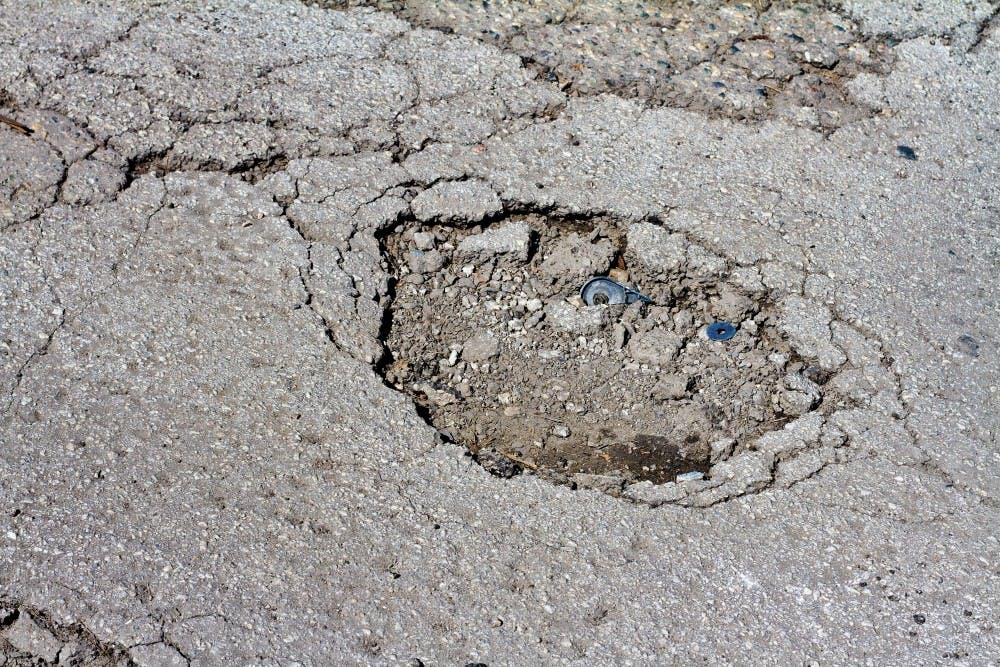EDITORIAL: Riding a rough road to progress

Securing funding to fix Michigan's deteriorating infrastructure has been a front and center issue in Lansing for years, but after divisive debate the legislature finally passed a bill that Gov. Rick Snyder is eager to sign.
The long-awaited plan would raise $1.2 billion through increased gas taxes and vehicle registration fees and $600 million in yearly general fund allocations. After it passed through both chambers of state legislature last Tuesday, Snyder said the deal was a good compromise, a sentiment shared by Speaker of the House Kevin Cotter in an op-ed featured in the Detroit Free Press.
Even while Snyder readies his pen, it has been made clear that the roads plan will continue to be a fight for the next crop of state leaders. The road to this compromise was shaky at best. Even it's passing wasn't a smooth ride.
Both chambers passed the fuel tax bills by close margins — 20 to 18 in the Senate and 55 to 52 in the House. The increase in vehicle fee registrations passed by the bare minimum of 54-53.
Although it's called a $1.2 billion road-funding plan, the package doesn't raise that amount for transportation until 2021 and won't raise anything for two years. According to a Senate Fiscal Agency, the plan increases transportation funding by $452 million in the 2017 fiscal year, $608 million in 2018, $763 million in 2019, $944 million in 2020 and $1.2 billion in 2021.
The plan also puts the first $100 million each year in new road revenue into a "lock box." That money isn't intended to be spent until a committee comes up with plans for the Michigan Department of Transportation to build roads that will last 50 years.
Michigan desperately needs to fix its roads, a fact legislators have acknowledged and have acted on. As with any compromise, neither side was able to negotiate everything they wanted, but backers of the deal have expressed that everyone should feel good about finally settling the future of the state's infrastructure problems.
Cotter told Central Michigan Life before the plan was passed that compromise was necessary to address an issue that had gone nowhere in years.
"Finding $1.2 billion is a big stretch. We all have our own definitions of perfect and it's going to require everyone to go outside of their comfort zone," he said. "I think that has been realized now. I think everyone is on the same page in that we need to get this thing addressed and there is a sincere interest in putting it behind us."
Legislatures should not take the easy way out when addressing problems that will impact the next generation of residents. At the same time, inaction on the state’s most pressing issue is not an option.
It is encouraging to see something being done, even if the current plan is imperfect.
Representatives have decided to bite the bullet, perhaps realizing they won't get a better deal and Michigan's roads will have to be repaired at the expense of other important programs. At the end of the day infrastructure should be in the top priorities of the government, and our budget should reflect this regardless.
The reality is that there is no perfect solution. We need investment to improve our roads.







